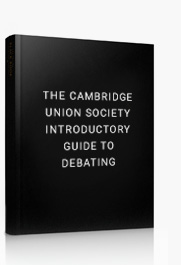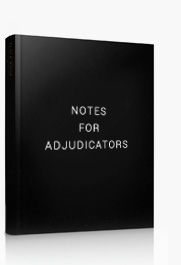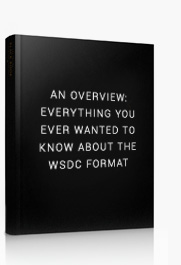Resources
The Cambridge Union Society Introductory Guide to Debating
The purpose of this resource is to give a little taste of public speaking skills which can be applied both inside and outside the realm of competitive debating.
Source: The Cambridge Union
Manual for Adjudicators
The rules of debate at the World Schools Debating Championship are a unique blend of rules from different nations. No single country invented the style, and no single country uses the style as its own national standard.
Three fundamental principles:
1. A good argument is a good argument, no matter where a team comes from.
2. Everybody else except you has a funny accent.
3. Just because teams back home wouldn’t do it doesn’t make it wrong.
The first principle says that logic is universal: your country doesn’t have a monopoly on it. To put it another way, don’t prejudge debates by the nationality or background of the teams. Non English-speaking teams have defeated some of the top teams in past years, teams from small nations have won the Grand Final, and teams from countries in their inaugural year in the tournament have beaten long-established teams.
Source: Notes for Adjudicators
Overview: Everything You Ever Wanted to Know About the WSDC Format
The World School Debate Format was specifically created for the Worlds Schools Debating Championship which was established 26 year ago. The first Worlds Schools Debate Championship happened in Australia with just a few countries competing. This year Worlds Schools Debate Championship in Thailand was attended by 45 countries from all over the world. The format is mainly debated at high school level and the last years of middle school. Through the years the Worlds Schools Debate Format has been gaining on popularity and more and more countries have adopted it. Worlds School Debate Format has become one of the most common debate format in high schools in countries like Germany, Netherlands, Poland, Slovenia, Croatia, Romania, Greece, Turkey, Israel, South Korea, Qatar, Arab Emirates, Pakistan, Singapore, South Africa, China, Argentina, Peru and a lot of others.
Source: Everything You Ever Wanted to Know About the WSDC Format



